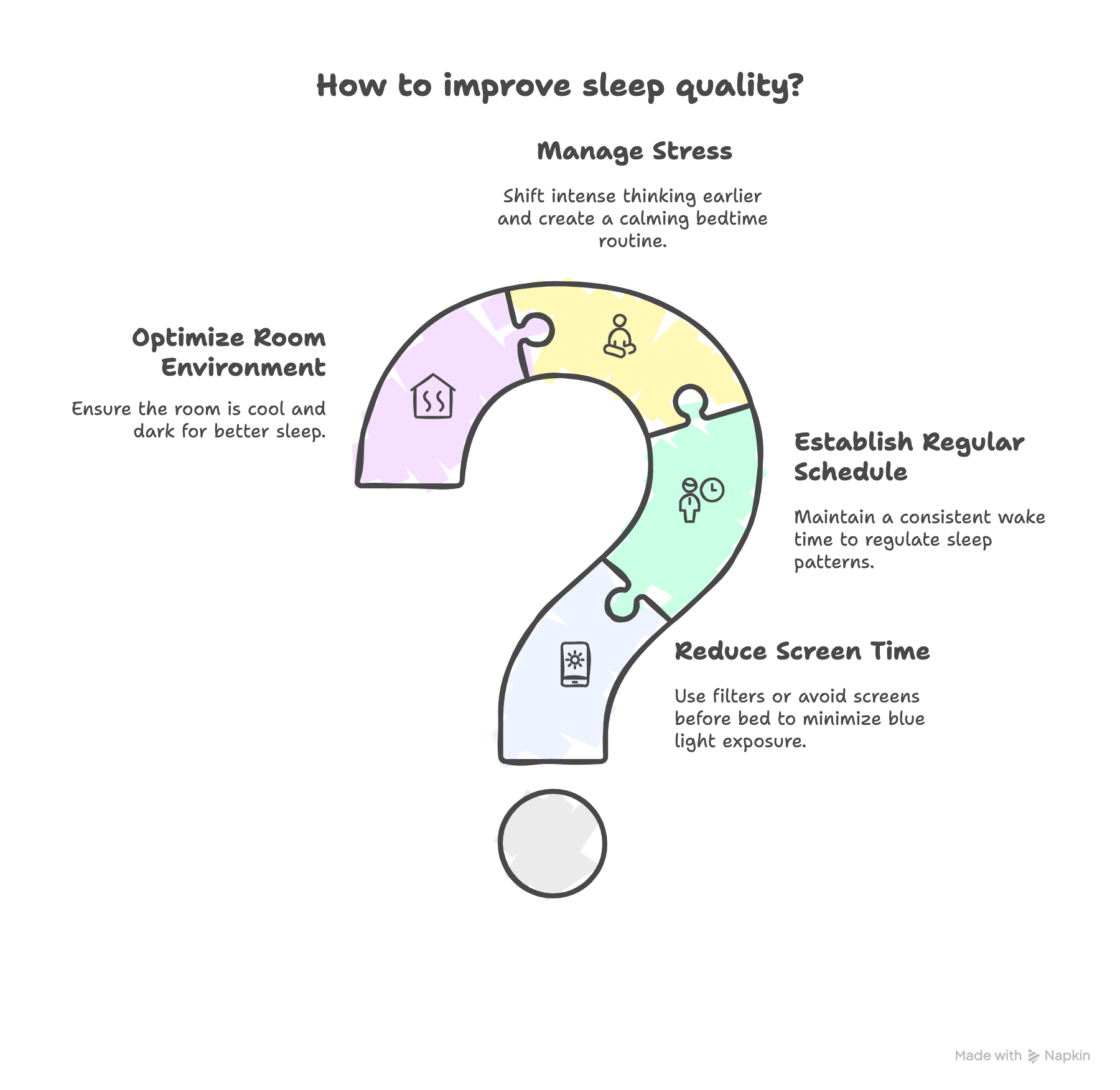How a Night Routine Can Transform Your Sleep (and Health)
Most of us are sleeping less than we need. The average adult gets under seven hours, yet many people function best with 7.5–9 hours. If you’re a busy professional or parent, building a consistent Night Routine can make the difference between dragging through the day and waking feeling genuinely rested.
Why Your Wind‑Down Matters
Sleep isn’t an on/off switch; it’s a dimmer. A thoughtful bedtime routine helps the nervous system shift from “go-mode” to “rest-and-repair,” setting up deeper, more restorative sleep. If afternoons feel sluggish, memory is fuzzy, or moods run hot, it’s a sign your current approach isn’t supporting recovery.
Signs You’re Not Sleeping Enough
Occasional rough nights happen. Chronic short sleep shows up as:
Hitting snooze and still feeling wiped
Afternoon energy crashes
Dozing off in warm rooms or during TV
Heavier cravings and grazing at night
Irritability, lower patience, or brain fog
Left unchecked, poor sleep links to higher injury risk, slower fat loss, and increased cardiometabolic risk.
Build a Night Routine That Works
Below is a practical framework you can tailor to your life. Keep it honest, simple, and repeatable.
1) Anchor Your Clock (Circadian Basics)
Pick consistent bed and wake times within a 30–60 minute window daily. Morning light within an hour of waking and regular movement during the day help your internal clock. This predictability makes falling asleep easier.
2) Shape the Environment (90 Minutes Before Bed)
Create an evening routine that tells your brain it’s time to slow down:
Dim household lights; use warm lamps
Park work devices and turn on “Do Not Disturb”
Keep the bedroom cool (about 18°C), quiet, and dark
Consider an eye mask or blackout curtains if street lighting is strong
3) Move Strategically
Daily activity improves sleep depth. Aim for regular training, but avoid very intense sessions late at night. Light stretching or a short walk makes a great pre‑sleep routine.
4) Eat and Drink Smarter
Support recovery without overloading digestion:
Avoid heavy meals in the last 2–3 hours
Limit alcohol
Cut caffeine from mid‑afternoon
If peckish, have a light balanced snack (e.g., Greek yoghurt with berries)
Taper fluids after dinner to reduce bathroom trips
For more info on nutrition and to work out your Calorie target and macro ratios, visit our free Macro Calculator.
5) Downshift the Mind
Your wind‑down routine should reduce mental noise:
Jot tomorrow’s top 3 tasks so your brain stops looping
Try 3–5 minutes of slow breathing (inhale 4, exhale 6)
Take a warm shower or bath to drop core temperature afterwards
Read paper pages or listen to calming audio
6) Protect the Bedroom Association
Reserve the room for sleep and intimacy. Remove TVs, tidy the space, and keep devices off the bedside. This strengthens the cue that bed = rest.
Common Sleep Disruptors (and Easy Fixes)
Late-night screens: Use app or device filters at sunset; better yet, step away 60–90 minutes before bed.
Irregular schedule: Start with just a steady wake time; bedtime will follow.
Stress spikes: Move intense thinking earlier; build a brief before bed routine that’s the same every night.
Room too warm or bright: Lower thermostat, add an eye mask, or upgrade curtains.
A Simple 7‑Day Reset
Try this for one week and notice morning energy:
Days 1–2: Fix wake time; get morning light; add a 10‑minute walk after dinner.
Days 3–4: Dim lights 90 minutes pre‑bed; do 5 minutes of breathwork.
Days 5–6: Add a warm shower before lights out; set phone to charge outside the bedroom.
Day 7: Review what helped; keep the wins and drop the noise.
FAQs (Quick Hits)
Q: Is napping okay?
Short naps (10–20 minutes) can help, but avoid late afternoon if it delays bedtime.
Q: What’s the best temperature?
Most sleep well around 18°C; go cooler if you use heavier bedding.
Q: Can I still train in the evening?
Yes - just finish intense work 2–3 hours before bed and keep a soothing sleep routine afterwards.
Start Tonight
Great sleep starts long before your head hits the pillow. Choose one or two healthy night habits from above and make them your default. Small, consistent steps compound quickly - especially for busy people balancing work, family, and fitness.
For coaching that respects your time and goals, Get Me Fitter offers semi‑private and 1‑to‑1 personal training with supportive accountability.
got a health & fitness question?
is your problem not solved or your question not answered… hit the button below and let us know and one of the team will get back to you.



